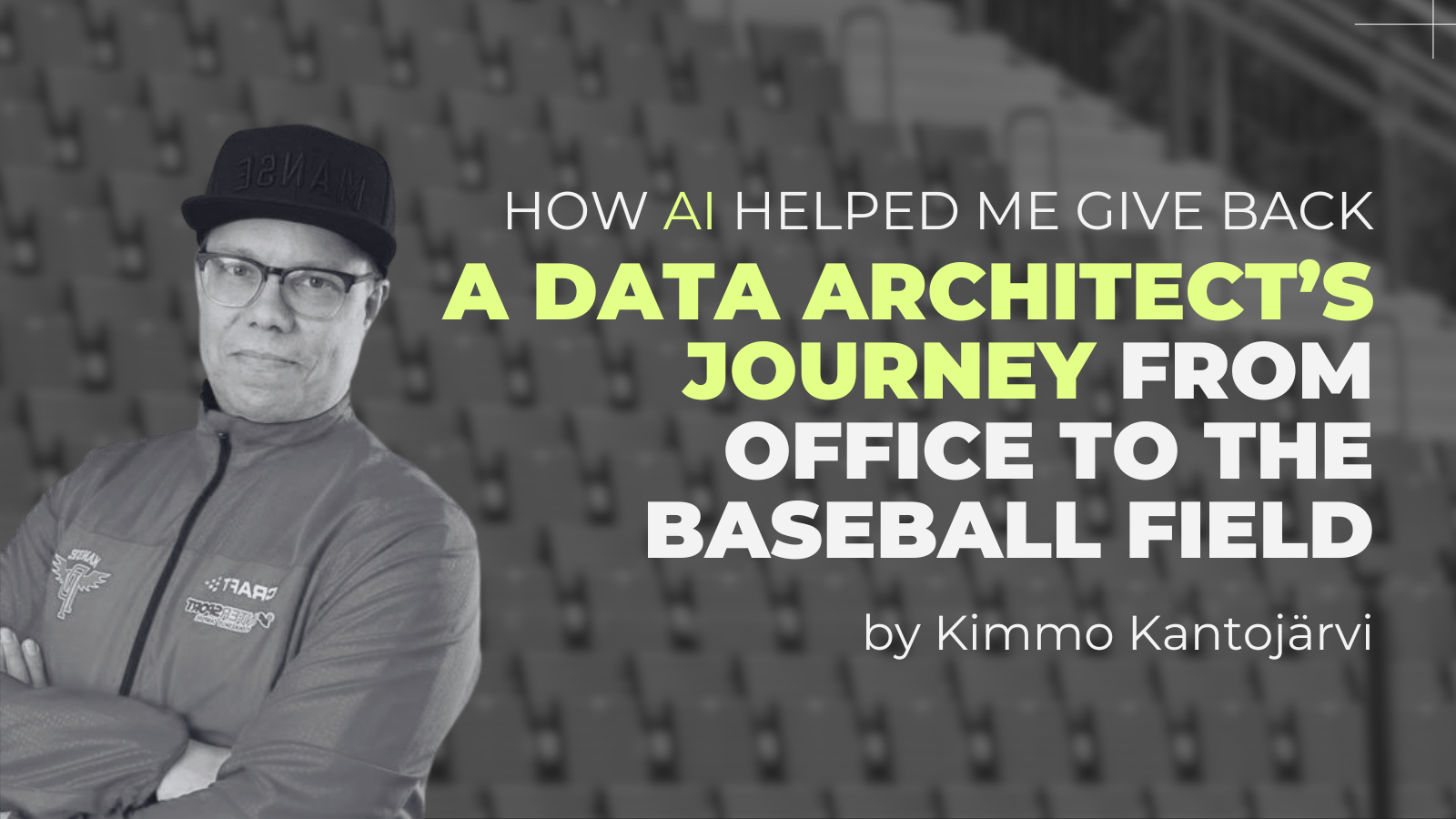Share to gain more social capita
Written by — Kimmo Kantojärvi, Data Architect Partner

Our Data Architect Kimmo Kantojärvi shares how AI helped his local Finnish baseball club, freeing up volunteers to focus on what matters most: the kids.
Written by — Kimmo Kantojärvi, Data Architect Partner
Share to gain more social capita
🇫🇮 This blog is available in Finnish (translation); please find it using the language switcher on the top right corner.
We usually hear about AI in the context of billion-dollar startups and breakthroughs, but it can subtly transform everyday problems too. I’ve learned firsthand that AI's true power lies not just in disruption, but in quietly enabling change where it matters most, even in a small Finnish baseball club.
By day, I work as a Data Architect at Recordly, helping companies harness data and AI to solve complex business challenges. But after hours, I devote my time to something quite different: Manse PP, our local Finnish baseball (pesäpallo) club in Tampere and a non-profit that’s deeply rooted in our community.
This is a story of how I brought those two worlds together and how AI helped us reclaim our most valuable asset: time.

Photo by Elmeri Lindqvist
At Recordly, I help organizations build scalable data architectures, streamline data flows, and design AI-driven solutions that optimize everything from logistics to customer insights. I’m used to thinking in systems, processes, and opportunities for automation.
Meanwhile, at Manse PP, I see a different kind of system at work: one powered by volunteers, passion, and a desire to create positive experiences for kids and families. But like many non-profits, our operations were bogged down by the usual culprits: manual admin, scheduling headaches, paperwork errors, and reactive firefighting.
It didn’t take long before I started seeing parallels. The same principles I use at Recordly for process optimization, error reduction, and automation through AI could make a tangible difference here too.
So far, our efforts have focused on process automation, particularly around intelligent document handling. I began integrating AI and automation tools into the club’s workflows, starting with one of the most time-consuming pain points:
Building on that success, we are planning to introduce further AI-driven improvements to streamline club operations:
Each of these ideas is inspired by what I’ve seen or built at Recordly, adapted to the needs and scale of a grassroots club.
The transformation hasn’t been that dramatic so far, but it was deeply effective. With fewer errors, faster workflows, and better coordination, our staff and volunteers could focus more on what truly matters: spending time with the kids.
For a non-profit like ours, that’s the real return on investment. Not in profits, but in people. Not in margins, but in meaningful moments.
This experience showed me something profound: the same expertise we apply in enterprise environments can generate enormous value in everyday life. You don’t need to build the next ChatGPT or revolutionize a Fortune 500 company to make a meaningful impact with AI. You just need to identify a real-world bottleneck and care enough to fix it.
If you’re in tech, data, or AI: look around. Your local sports club, school, charity, or community center probably faces the same issues as any business, just without the resources to solve them. You don’t have to quit your job to make a difference. Just bring what you know to where it’s needed the most. If you're part of a community project, don’t be afraid to experiment with simple AI tools. Automating one spreadsheet, validating one form, or improving one schedule could unlock hours of time and countless smiles.
At Manse PP, we’ve only scratched the surface. Next, I hope to bring in deeper analytics for player development, tools for onboarding families, and maybe even injury tracking insights.
But what matters most is the principle: AI can be a force for good, not just in tech giants, but in towns, teams, and small acts of service. I’m proud of what we’ve done at Recordly. I’m even prouder of how I’ve been able to take those learnings and bring them home.
.jpg?width=2048&height=1365&name=Recordly%20it%C3%A4%20vs.%20l%C3%A4nsi-145%20(1).jpg)
If AI can streamline a local sports club, imagine what it could do for your business.
Reach out to explore what’s possible!